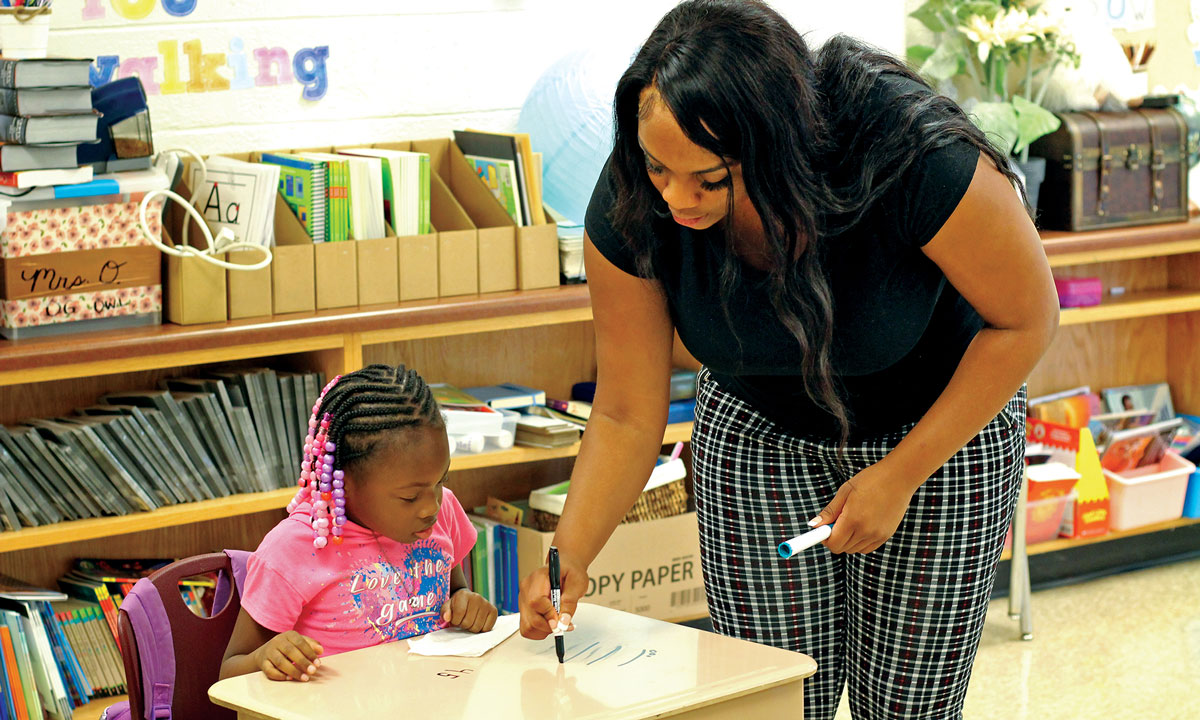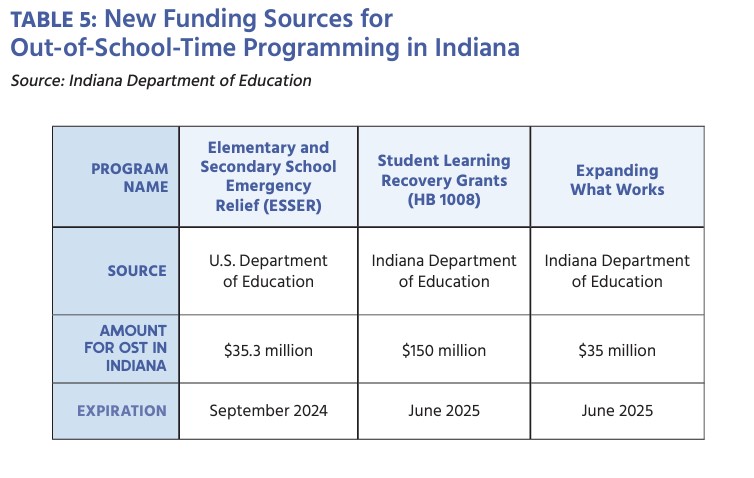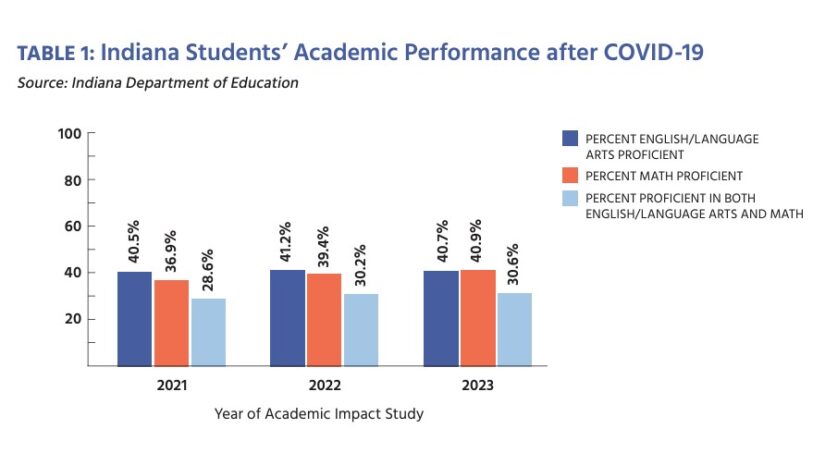Advocates Warn Expiring COVID Funds Could Threaten Key Summer & Afterschool Learning Programs Across Indiana
‘Expanded Classroom’ report underscores impact of summer, afterschool and tutoring efforts in driving learning recovery & closing achievement gaps.

Get stories like this delivered straight to your inbox. Sign up for The 74 Newsletter
Indiana state officials must continue to fund strong afterschool and summer learning programs that have helped many students catch up after the pandemic — even when government money runs out, according to a new report from advocates.
Programs that add hours and support to the school day, are especially critical for low-income students who were set back the most during the pandemic, according to the report, “The Expanded Classroom.” Those students’ families can’t pay for tutoring, museum visits, and arts activities that more affluent families can.
“The classroom has been the primary venue for helping students learn, build relationships, and develop skills for the workforce,” according to the report. “But in the current era, such activities must transcend the classroom to help kids fully recover from learning loss, close longstanding achievement gaps, and prepare students for 21st-century careers.”
Only one quarter of Indiana students are able to attend these programs, the report found, but many more should be added, not reduced, as will happen if money runs out in the next two years.
“Effort must be sustained over years—not months—to make up for the lost time of the pandemic and to begin to chip away at a decades-old gap in educational outcomes between high- and low-income students,” states the report, a joint project of the United Way of Central Indiana, the Boys and Girls Clubs serving South Bend and Indianapolis, and nonprofit education advocacy groups The Mind Trust and Indiana Afterschool Network.
Since the start of the pandemic, the state has devoted $35 million of federal COVID relief money to out-of-school learning, plus another $185 million in state money. The federal money runs out next fall and the state money runs out in the summer of 2025.

Mind Trust officials said they hope the report rallies support for out-of-school learning with legislators ahead of the 2025-2027 state budget debate. The report doesn’t ask for a specific amount of money or for money for any particular program, just for understanding the importance of learning outside of the school day.
“It’s really to make sure that our state leaders, legislators and others are thinking about the out-of-school time programs in Indiana as an important part of the ecosystem, and not as something that is just a time-limited program that’s about COVID recovery, and nothing else,” said Mind Trust chief strategy officer Kristin Grimme.
State Rep. Bob Behning, chairman of the House Education Committee, said there’s support for programs outside of the school day in the Legislature. But he cautioned there will be competition for money in the next budget.
“I would predict it’s going to be tight, tighter than we’ve had the last couple of budget cycles,” Behning said. “So you’re going to have to really define not just the need, but that there are gains. Once you can define the academic gains. I think that there would be more interest.”
Grimme agreed and said programs need to be evaluated and money should go to those that were the most successful. Some programs have evaluations pending while others have emerging data on their academic impact that should be reviewed next year.
Adding academic gains is extra important because Indiana’s recovery from the pandemic has “stalled,” the report contends. Though state test scores have improved since 2021, reading proficiency rates fell slightly between 2022 and 2023 while other gains were small.
Indiana also saw college enrollment drop from 65 percent of graduating high school seniors before the pandemic to 53 percent in 2020–21.
Photo: https://drive.google.com/file/d/1wbmmHBHcLjkEATXQbm6qw2-HCnPJiBG_/view?usp=drive_link

The report highlights the Indy Summer Learning Labs the Mind Trust and United Way have organized in Indianapolis using state money the last three years. That five-week program serving more than 5,000 students in 43 different sites around the city shows double-digit gains in proficiency rates in the tests students take at the start of the program and at the end.
Last summer, the labs saw 23 percentage point increases in students scoring at grade level or above in English and 22 percentage points in math.
The state will soon take applications from organizations around the state to expand that summer program to other cities, though money set aside for them ends in 2025.
Indiana Learns, another program that gives $1,000 grants to low-income parents to spend on tutoring or afterschool programs for their children, is being evaluated now to see if it needs changes. With more than 10,000 students using more than 100 different tutoring providers, Grimme said, it’s hard to know if Indiana Learns is reaching the right students and if they are getting what they need.
“I do think it’s something that we launched quickly to try to support students and families across the state,” Grimme said. “Is it the version of the program that the state should sustain in the future?”
Get stories like these delivered straight to your inbox. Sign up for The 74 Newsletter

;)
